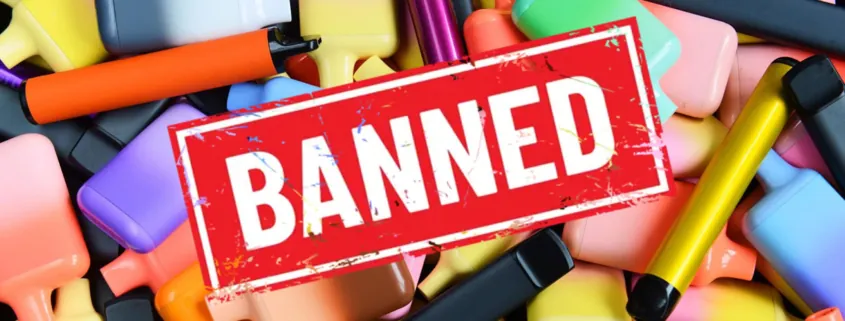Disposable Vape Bans Sweep Globe, Experts Warn of Consequences
A wave of disposable vape bans is sweeping across the world, as policymakers aim to curb the rise in youth vaping. However, experts in the field are raising concerns about the potential unintended consequences of these bans, arguing that they may hinder adult smoking cessation efforts.
Belgium Leads the Way in the EU
Belgium is set to become the first European Union country to prohibit the sale of disposable vapes, with the ban taking effect on January 1, 2025. Federal Health Minister Frank Vandenbroucke cited the negative impact of disposables on both the environment and society, particularly young people, as the driving force behind the decision.
Despite existing bans on selling vapes to minors, Vandenbroucke noted that marketing strategies for these products remain youth-oriented, leading to widespread use among young people. The European Commission’s approval of the ban marks a significant step in Belgium’s efforts to create a smoke-free generation and protect youth from the allure of tobacco and similar products.
While non-disposable vapes will still be permitted for smoking cessation purposes, measures will be put in place to prevent them from being marketed in a way that attracts young users.
France Follows Suit
France has followed Belgium’s lead, seeking approval from the EU Commission to implement its own ban on disposable vapes. The French parliament reached an agreement to enact the ban, which is expected to take effect by the end of September, pending validation from the EU Commission.
Health Minister Catherine Vautrin emphasized the ongoing fight against smoking and reiterated the detrimental effects of disposable vapes on the environment, society, and health during a Senate session in February. She highlighted the marketing tactics targeting young people with enticing flavors and designs and referred to a report by the French Monitoring Centre for Drugs and Drug Addiction, which reported a threefold increase in teenage use of electronic cigarettes, including disposables, between 2017 and 2022.
New Zealand Joins the Movement
On the other side of the globe, New Zealand has announced plans to ban disposables and increase penalties for selling these products to minors. Associate Health Minister Casey Costello acknowledged the effectiveness of vapes as smoking cessation aids but expressed concern over the surge in youth vaping rates.
The decision comes after the repeal of the tobacco generational ban introduced under the previous Jacinda Ardern-led government, which would have banned cigarette sales to anyone born after 2008 as of next year. Costello emphasized the need to address the rapid increase in youth vaping, which has raised alarms among parents, educators, and health professionals.
New Zealand’s new measures, which include an age limit for purchasing vapes and a ban on the sale of e-cigarettes with imagery or names that may appeal to young people, aim to strike a balance between supporting smoking cessation efforts and safeguarding young people from nicotine addiction.
Experts Warn of Unintended Consequences
While policymakers believe that banning disposable vapes may be the answer to reducing teen vaping, experts in the field have consistently voiced their concern, describing these bans as misguided policies that may harm public health efforts and worsen health inequalities.
When the UK announced its own disposable vape ban earlier this year, Director of the World Vapers Alliance (WVA) Michael Landl warned that the move could drive current vapers back to more harmful smoking habits or towards the black market, jeopardizing the health of millions.
Research from UCL and King’s College London suggests that the UK ban could impact approximately 2.6 million people, slowing the decline in smoking prevalence and disproportionately affecting disadvantaged groups. Experts argue that this ban is counterproductive, restricting access to a crucial tool for smokers transitioning to safer alternatives.
Tobacco harm reduction experts have consistently highlighted that the cheap and non-committal nature of disposable vapes makes them an easy entry point for smokers who are curious about vaping but may not be ready to invest in a starter kit. They suggest making the products available for adult smokers while setting in place and enforcing strict age restrictions to prevent access to minors.
As more countries join the trend of banning disposable vapes, it remains crucial to consider the potential unintended consequences of these policies and to strike a balance between protecting youth and supporting adult smokers in their efforts to quit smoking.
- Is Vaping and Driving Illegal in Vermont? (2025 Guide) - July 18, 2025
- Vaping Laws in Vermont : A Comprehensive Guide for 2025 - July 18, 2025
- Malaysian Sarawak Considers Banning Vape Product Sales - July 18, 2025








